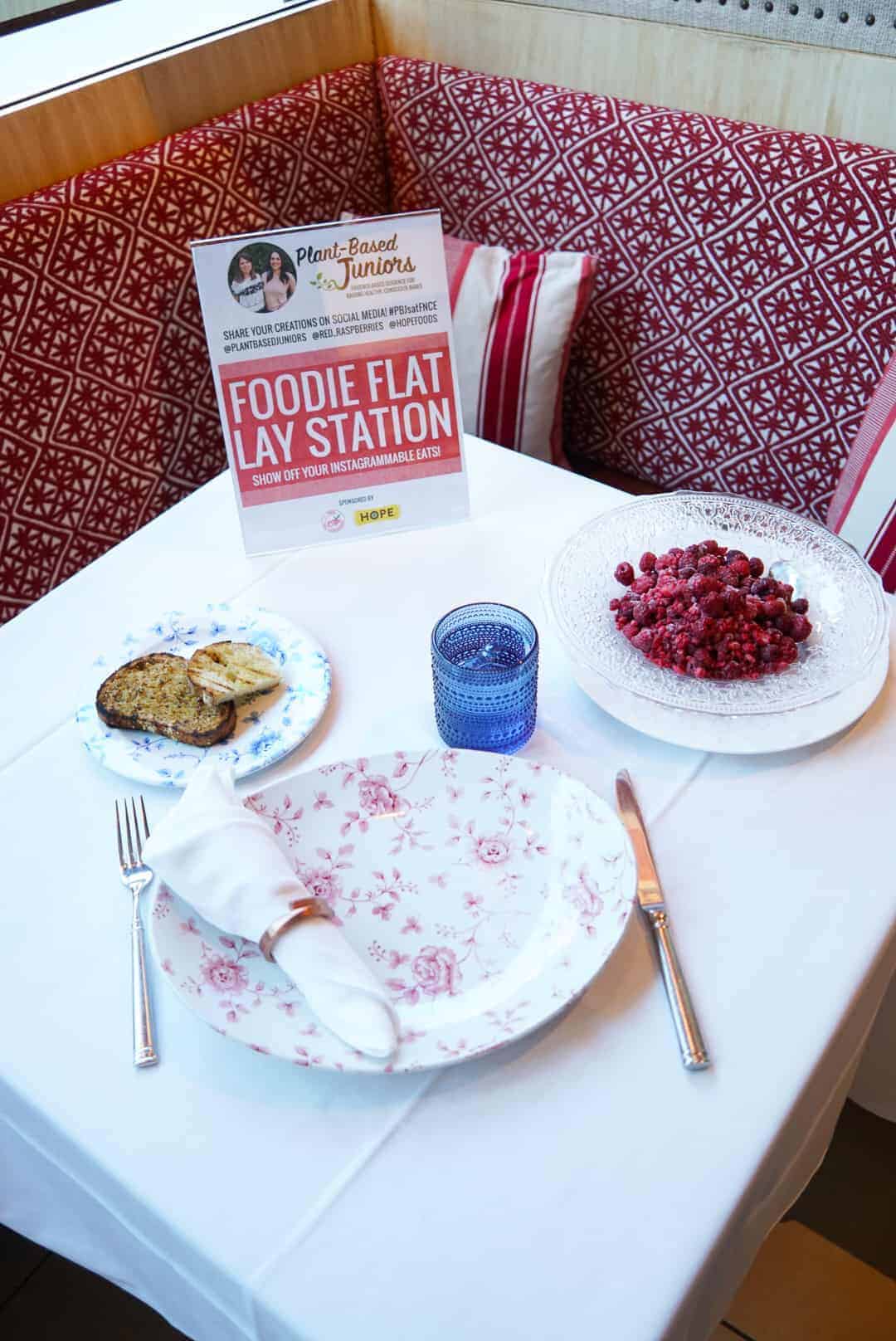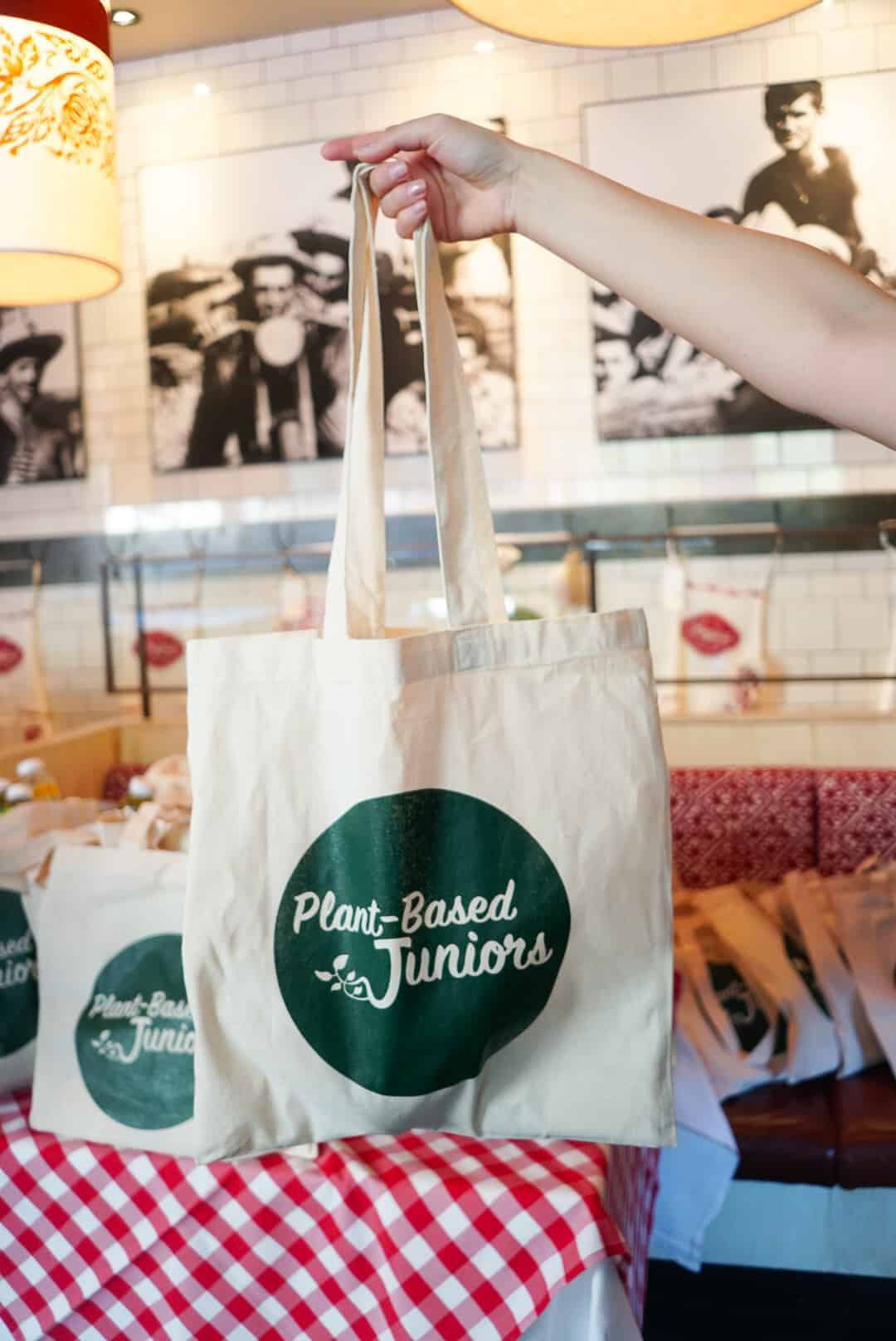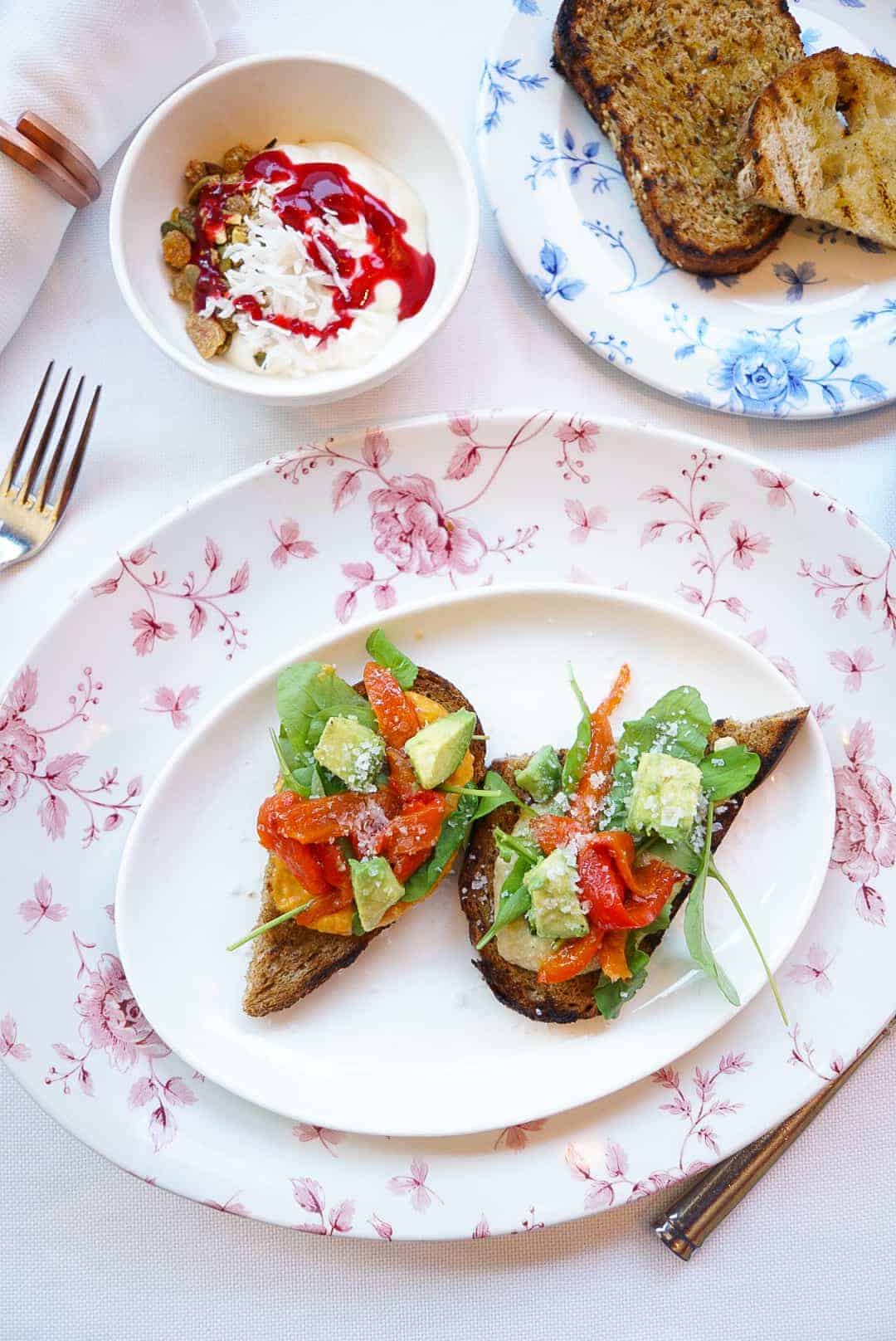Raising Plant-Based Juniors
In D.C. last month we officially launched Plant-Based Juniors, our new platform that helps parents who want to raise healthy, conscious babes. I first introduced you to PBJs earlier this summer with the announcement of our first ebook, and it felt awesome to share that same story with our dietitian colleagues.
As most of you know, I become a mom last year to my sweet Vander and to say it’s changed my world wold be the understatement of the year. Motherhood has changed everything, mostly for the better.
One thing that’s been center focus is how I will raise him. My husband BL and I are long-time vegetarians, so naturally we plan on raising Vander the same way. And while I feel very confident that this eating pattern is best to promote health and longevity for BL and I, I was a little nervous when it came to my sweet boy.
Children’s nutrient needs are different than ours. They don’t just need smaller portions of the food we eat; there are specific nutrients that must be met and frankly, some of those are harder to do with a mostly plant-based diet.
It’s why I teamed up with my friend and fellow dietitian, Whitney English, to create Plant-Based Juniors– an evidence-based resource for parents looking to raise plant-based babies.
Last month, we hosted a launch lunch at the annual dietetics conference for 35 other dietitians to celebrate the new venture and to myth-bust common thoughts around raising plant-based children. The National Processed Raspberry Council and HOPE Hummus sponsored the lunch and allowed us to serve the most incredible buffet (see the menu below!) In addition to yummy vegetable sides, we had a DIY avocado toast bar & a DIY vegan yogurt parfait bar. Both were a big hit with all who attended.
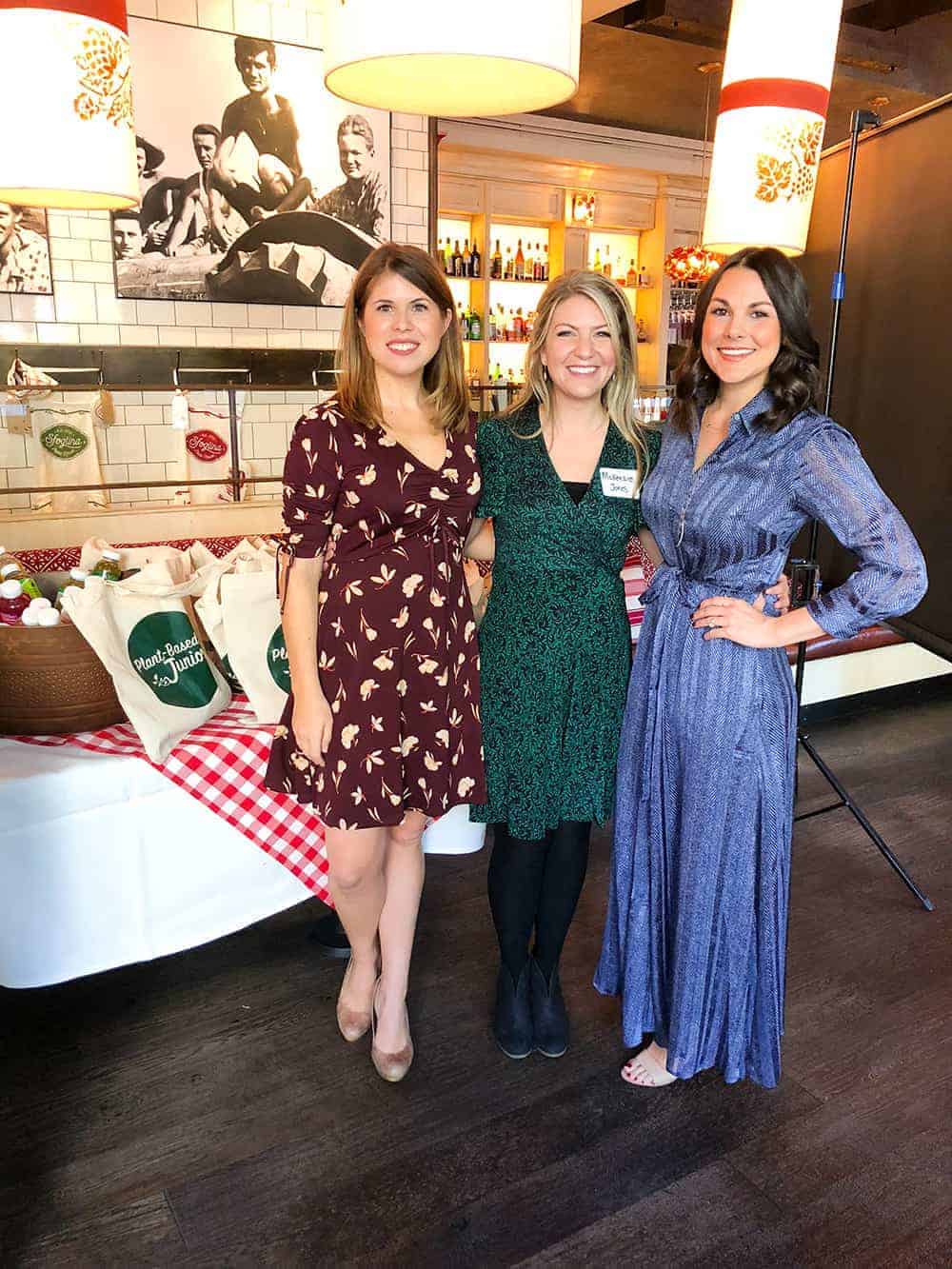
Even though per-capita meat consumption is up, there is large growing trend towards plant-based eating. While the percentage of Americans who identify as strict vegetarian or vegan are still relatively small, the trend of eating more meatless meals continues to grow year after year.
Obviously, that translates into family meals as well. One thing that we know from surveying our Plant-Based Junior’s audience is that many parents have gotten the message that eating more plants is the best thing they can do for reducing chronic disease, longevity and the health of the planet. Even though most of our audience doesn’t identify as strict vegan or vegetarian, they want to start their children off on the right foot.
Children eating plant-based diets typically have lower intakes of cholesterol and fat, higher intakes of fruits, vegetables, and fiber, are leaner and have lower cholesterol levels. We know this all to be true, yet there is still a lot of confusion out there about the safety of raising plant-based kids. I remember feeling the same way while pregnant!
Therefore, I want to break down a few common misconceptions…
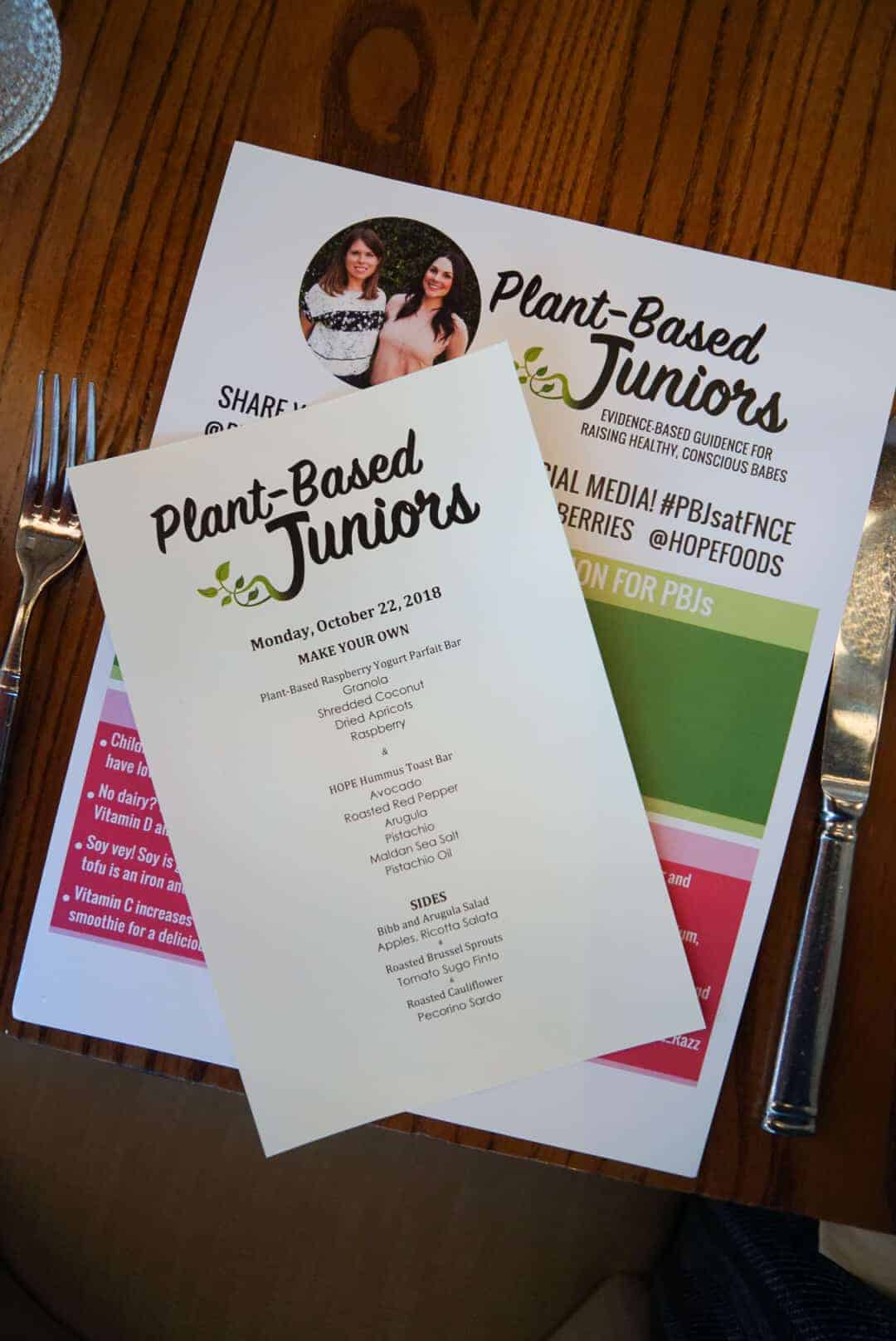
Myth: Children need dairy to form strong healthy bones.
Fact: Strong bones are dependent on a combination of factors – proper nutrition and exercise being paramount. However, kids don’t need cow’s milk to get the nutrients required to build healthy bones, they can get everything they need from whole plant foods.
The most important nutrients involved in bone mineralization are calcium, vitamin D, and vitamin K.
Both calcium and vitamin K are found in leafy green vegetables and vitamin D is synthesized in our body from sunlight or can be supplemented in the diet. The vitamin D found in milk, for example, is added not naturally occurring.
Myth #2: Calcium in plants is less bioavailable than in milk.
Fact: In fact, the bioavailability of calcium in some cruciferous vegetables is actually twice as high as milk. Which is why we encourage consumption of these vegetables for all kids. Tofu, soy milk and fortified products have the same absorption as milk. And, fortified soy milk contains the same amount of calcium as dairy milk.
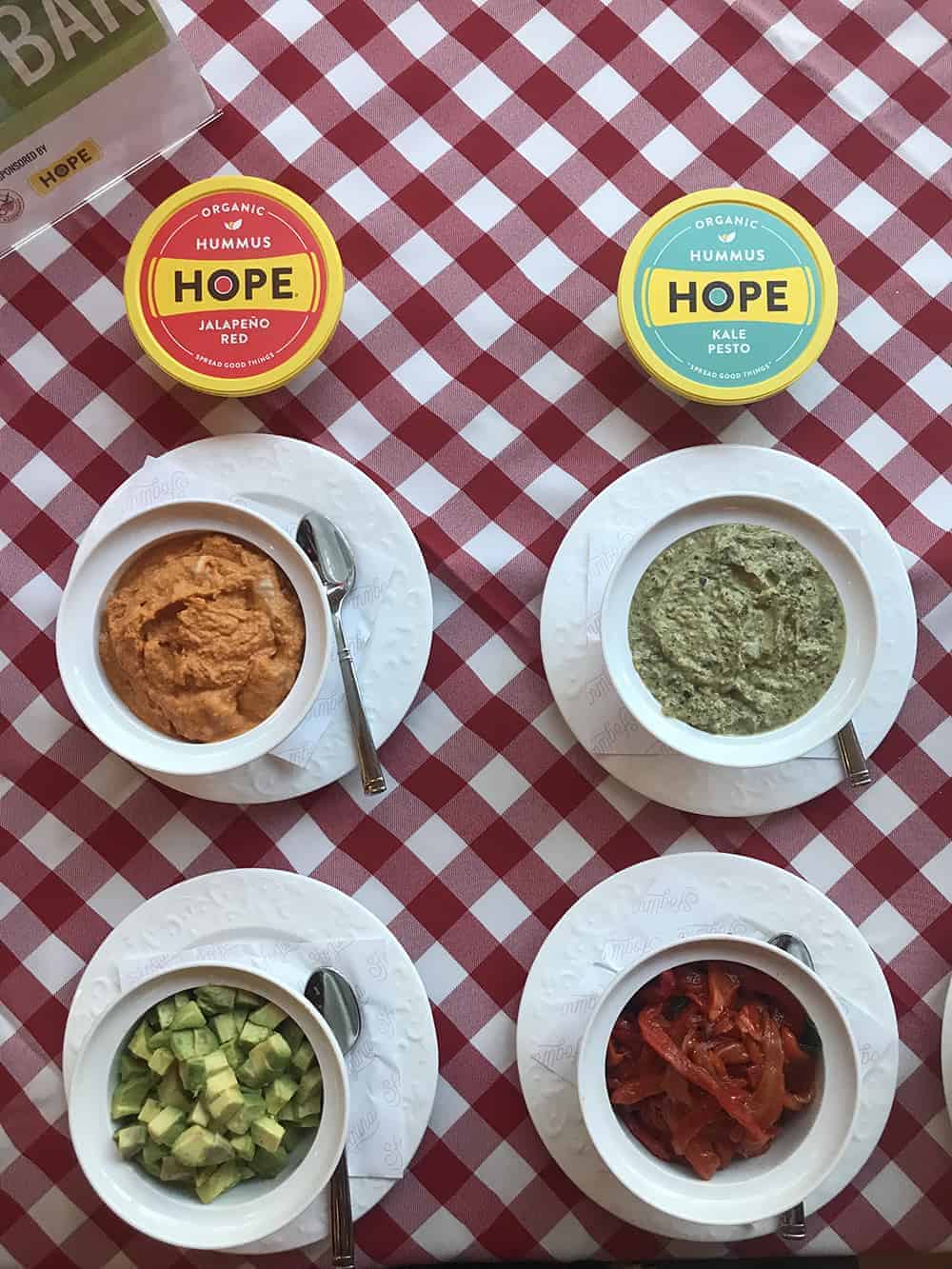
Myth #3: Kids won’t get enough iron with a plant-based diet.
Fact: Iron is a topic of concern for many parents, and rightly so. Estimates are that 8% of all children and infants are iron-deficient, whether or not they eat meat. Iron is found in many plant sources and while it is less bioavailable, A small serving of a vitamin C-rich food—like a glass of orange juice or ½ cup of cauliflower—has been shown to increase iron absorption from plant foods by as much as four to six times! That’s a lot, and I’ve got pairings of kid-friendly sources of iron + vitamin C below.
Easy Iron + Vitamin C Combos for PBJs:
- HOPE hummus mixed with sweet bell peppers
- Black beans tacos with salsa
- Bran flake cereal with frozen raspberries
- Wheat bread with almond butter + raspberry jam
- Spaghetti sauce with spinach and enriched pasta
- Avocado rolled in wheat germ (for baby-led weaners)
- Sautéed swiss chard and tomatoes
- Tofu and green bell pepper stir-fry
- Edamame and orange slices for snack
- Lentil soup with tomatoes
- Dark chocolate and berries
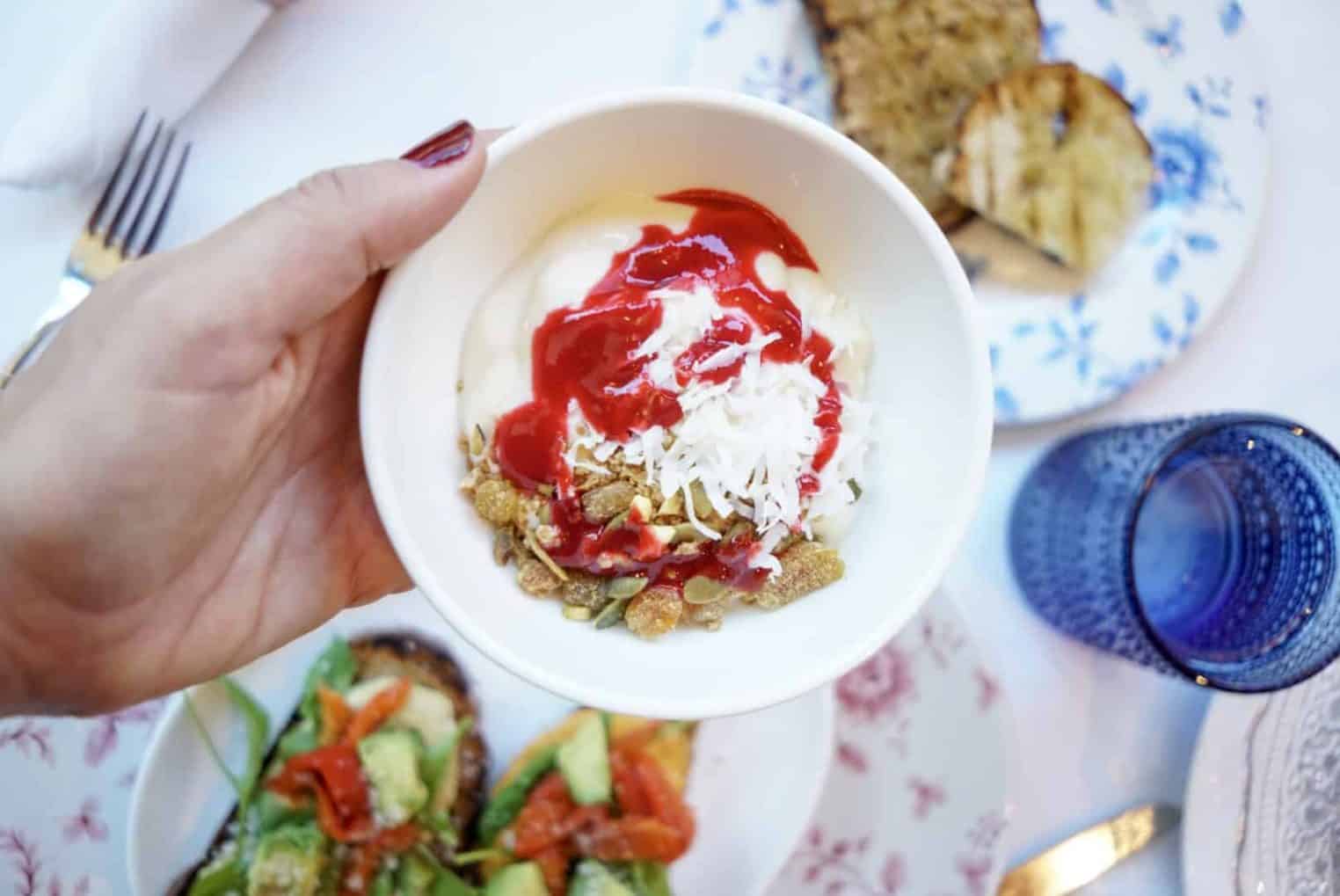
Last one! Myth #4: Kids can’t meet their protein needs on a plant-based diet.
You might be surprised to realize how little protein kids actually get. The average 2 year old only needs about 13g of protein per day, which is easily met in just 2 cups of soy milk alone- without any other foods.
Plenty of kid-friendly plant foods are high in protein: whole grain bread, pasta, tortillas, beans, tofu, veggie burgers, veggie hot dogs and more.
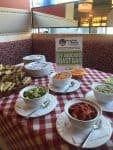
What questions do you have about raising plant-based juniors? If you’re looking for more information and resources on raising plant-based babes then you’ll want to grab up our ebook, First Bites: The Definitive Guide to Baby-Led Weaning for Plant-Based Babies.
